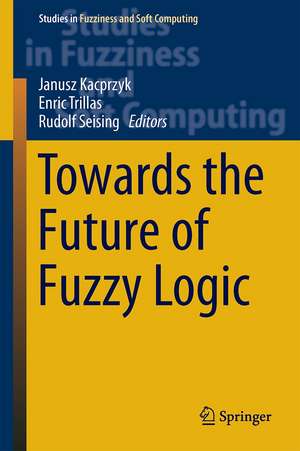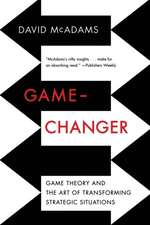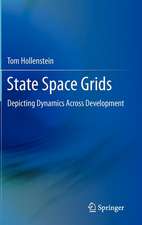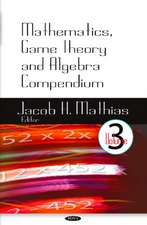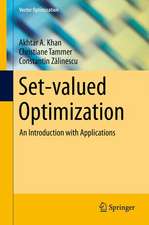Towards the Future of Fuzzy Logic: Studies in Fuzziness and Soft Computing, cartea 325
Editat de Rudolf Seising, Enric Trillas, Janusz Kacprzyken Limba Engleză Hardback – 10 iun 2015
| Toate formatele și edițiile | Preț | Express |
|---|---|---|
| Paperback (1) | 650.27 lei 43-57 zile | |
| Springer International Publishing – 9 oct 2016 | 650.27 lei 43-57 zile | |
| Hardback (1) | 656.69 lei 43-57 zile | |
| Springer International Publishing – 10 iun 2015 | 656.69 lei 43-57 zile |
Din seria Studies in Fuzziness and Soft Computing
- 20%
 Preț: 999.85 lei
Preț: 999.85 lei - 20%
 Preț: 653.06 lei
Preț: 653.06 lei - 20%
 Preț: 872.98 lei
Preț: 872.98 lei - 20%
 Preț: 930.57 lei
Preț: 930.57 lei - 20%
 Preț: 1051.00 lei
Preț: 1051.00 lei - 20%
 Preț: 992.44 lei
Preț: 992.44 lei - 20%
 Preț: 655.85 lei
Preț: 655.85 lei - 20%
 Preț: 1001.86 lei
Preț: 1001.86 lei - 18%
 Preț: 954.14 lei
Preț: 954.14 lei - 20%
 Preț: 330.10 lei
Preț: 330.10 lei - 20%
 Preț: 333.04 lei
Preț: 333.04 lei - 20%
 Preț: 997.56 lei
Preț: 997.56 lei -
 Preț: 391.61 lei
Preț: 391.61 lei - 20%
 Preț: 647.79 lei
Preț: 647.79 lei - 20%
 Preț: 986.01 lei
Preț: 986.01 lei - 18%
 Preț: 958.56 lei
Preț: 958.56 lei - 20%
 Preț: 996.40 lei
Preț: 996.40 lei - 20%
 Preț: 999.35 lei
Preț: 999.35 lei - 15%
 Preț: 646.43 lei
Preț: 646.43 lei - 20%
 Preț: 651.57 lei
Preț: 651.57 lei - 20%
 Preț: 997.89 lei
Preț: 997.89 lei - 15%
 Preț: 641.03 lei
Preț: 641.03 lei - 20%
 Preț: 1009.74 lei
Preț: 1009.74 lei - 20%
 Preț: 992.62 lei
Preț: 992.62 lei -
 Preț: 388.72 lei
Preț: 388.72 lei - 18%
 Preț: 1223.43 lei
Preț: 1223.43 lei - 20%
 Preț: 651.42 lei
Preț: 651.42 lei - 18%
 Preț: 951.59 lei
Preț: 951.59 lei - 18%
 Preț: 948.61 lei
Preț: 948.61 lei
Preț: 656.69 lei
Preț vechi: 820.86 lei
-20% Nou
Puncte Express: 985
Preț estimativ în valută:
125.70€ • 136.58$ • 105.65£
125.70€ • 136.58$ • 105.65£
Carte tipărită la comandă
Livrare economică 21 aprilie-05 mai
Preluare comenzi: 021 569.72.76
Specificații
ISBN-13: 9783319187495
ISBN-10: 331918749X
Pagini: 400
Ilustrații: XV, 376 p. 31 illus., 4 illus. in color.
Dimensiuni: 155 x 235 x 27 mm
Greutate: 0.73 kg
Ediția:2015
Editura: Springer International Publishing
Colecția Springer
Seria Studies in Fuzziness and Soft Computing
Locul publicării:Cham, Switzerland
ISBN-10: 331918749X
Pagini: 400
Ilustrații: XV, 376 p. 31 illus., 4 illus. in color.
Dimensiuni: 155 x 235 x 27 mm
Greutate: 0.73 kg
Ediția:2015
Editura: Springer International Publishing
Colecția Springer
Seria Studies in Fuzziness and Soft Computing
Locul publicării:Cham, Switzerland
Public țintă
ResearchCuprins
On Reasoning With Words and Perceptions.- Language, Fuzzy Logic, Metalogic.- On What I Still Hope from Fuzzy Logic.- Fuzzy Logic and Modern Economics.- Linguistic Summaries of Time Series: A Powerful and Prospective Tool for Discovering Knowledge on Time Varying Processes And Systems.-Granular Geometry.- Inquiry About the Origin And Abundance of Vague Language: an Issue for the Future.- Fuzzy Natural Logic: Towards Mathematical Logic of Human Reasoning.- From Lattice Valued Theories to Lattice Valued Analysis.- Applying Fuzzy Mathematics to Empirical Work inPolitical Science.- Crisis' Origin's Causes. Contributions from the Fuzzy Logic in the Sustainability on the Socio-economic Systems.- Advanced Computing with Words: Status and Challenges.- Informal Meditation on Empiricism and Approximation in Fuzzy Logic and Set Theory: Descriptive Normativity, Formal Informality and Objective Subjectivity.- Formalizing the Informal, Precisiating the Imprecise: How Fuzzy Logic Can Help Mathematicians and Physicists by Formalizing their Intuitive Ideas.- Future is where Concepts, Theories and Applications Meet (Also in Fuzzy Logic).- Graduated Conjectures.- Fuzzy Concepts and Fuzzy Logic in Historical and Genetic Epistemology.
Textul de pe ultima copertă
This book provides readers with a snapshot of the state-of-the art in fuzzy logic. Throughout the chapters, key theories developed in the last fifty years as well as important applications to practical problems are presented and discussed from different perspectives, as the authors hail from different disciplines and therefore use fuzzy logic for different purposes. The book aims at showing how fuzzy logic has evolved since the first theory formulation by Lotfi A. Zadeh in his seminal paper on Fuzzy Sets in 1965. Fuzzy theories and implementation grew at an impressive speed and achieved significant results, especially on the applicative side. The study of fuzzy logic and its practice spread all over the world, from Europe to Asia, America and Oceania. The editors believe that, thanks to the drive of young researchers, fuzzy logic will be able to face the challenging goals posed by computing with words. New frontiers of knowledge are waiting to be explored. In order to motivate young people to engage in the future development of fuzzy logic, fuzzy methodologies, fuzzy applications, etc., the editors invited a team of internationally respected experts to write the present collection of papers, which shows the present and future potentials of fuzzy logic from different disciplinary perspectives and personal standpoints.
Caracteristici
Provides readers with a comprehensive view of fuzzy logic and computing with words Reports on both consolidated theories and practical applications Discusses present and future challenges of fuzzy logic from different disciplinary perspectives Includes supplementary material: sn.pub/extras
